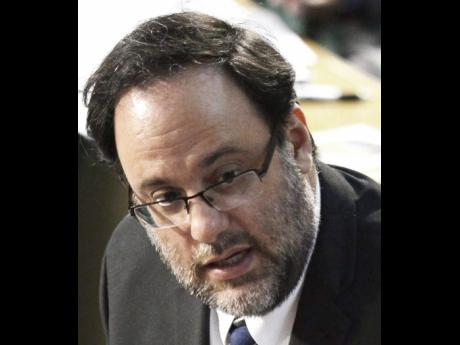New anti-corruption body will have no power to halt contract
DESPITE RENEWED calls for the director of investigations, under the proposed new corruption body, to be given the power to halt a government contract if alleged corruption is uncovered, the parliamentary committee which reviewed the bill is insisting that no such power would be granted to the corruption oversight body.
Opposition Senator Kamina Johnson Smith, who is a member of the joint select committee which examined the Integrity Commission law, argued that a "glaring gap" would exist in the statute if the commission did not have the power to stop a contract that had been tainted.
"To have one of the chief mandates of the commission to be prevention of corruption, it seems to be counter-intuitive that you would not give the commission that power to prevent a transaction that it recognises is proceeding in a corrupt manner," Johnson Smith reasoned during a meeting of the committee in Gordon House on Wednesday.
The joint select committee, which deliberated on the bill for little more than a year, had prematurely submitted a report to the Senate late last year.
A motion was moved and passed by the Senate for the committee to reconvene as previously constituted for the purpose of completing its deliberations.
The committee had given a commitment to have a final meeting last year before tabling its report in Parliament. Johnson Smith had asked that the proposed meeting be held to provide an opportunity for members to highlight any concerns they might have with the report.
Committee chairman Senator Mark Golding said the committee was not inclined to give the commission the power to halt a contractual process that the State is implementing.
He said it would be far more harmful to give a power to an unelected person to be able to "stymie public investment by merely on his own volition saying 'this must go no further while I investigate'. This is not a power that we are prepared, at this time to give".
However, Golding explained that "if in the course of a pre-contractual period an investigation has commenced and an indictment is preferred or criminal proceedings are brought in the Resident Magistrate Court in respect of that matter, the question of whether a contract is concluded in that scenario would be one that any public-sector agency would have to take into account."
He insisted that the commission would have the power to conduct an investigation and pursue prosecution against anyone who has breached the law in the pre-contractual process.
But Johnson Smith further queried whether the contractual process should continue while an investigation of a serious offence is taking place at the same time.
She said Jamaica's justice system would not proceed so quickly to have the prosecution concluded before preventing public funds from being wrongfully expended.
According to Golding, there had been instances where the State suffered significant losses as a result of pre-contractual intervention that delayed government projects.
The National Integrity Action had submitted that the director of investigation, under the new anti-corruption body, should have the authority to suspend the award of a contract or licence where the procurement process was found to breach the canons of impartiality and propriety.


